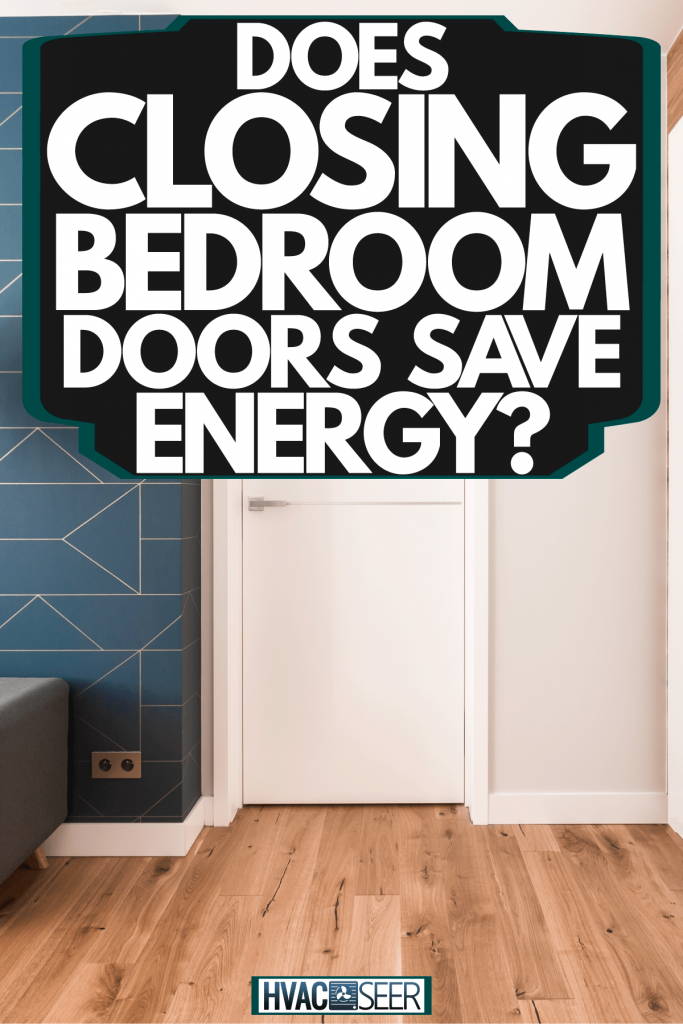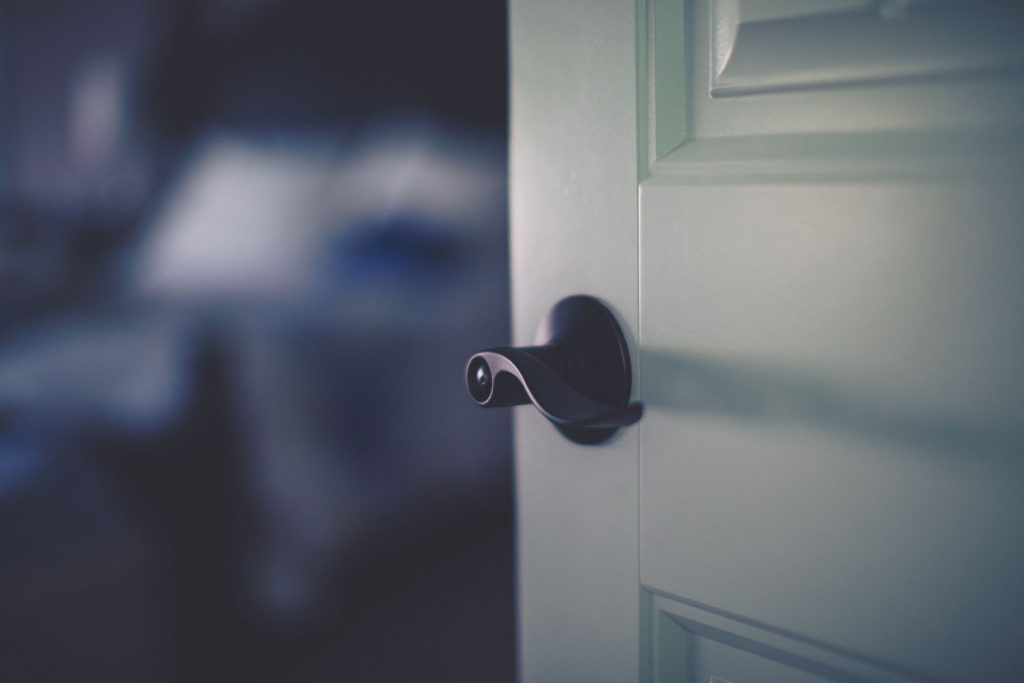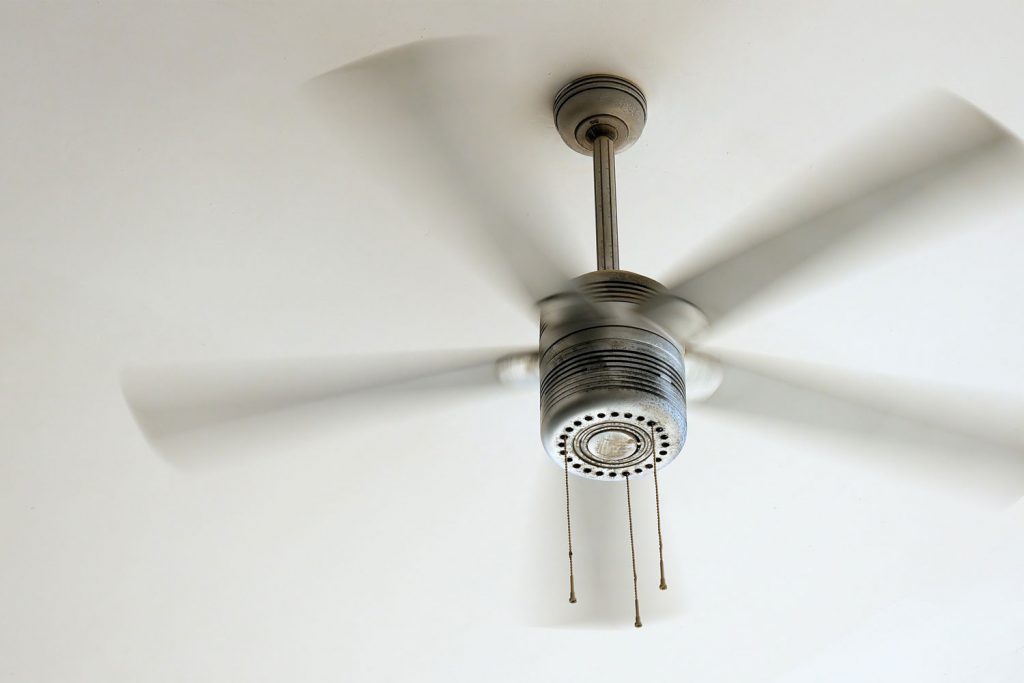As you get ready to head out the door for the day, you may pause as you reach to shut your bedroom door. Do you want to try closing your bedroom door to save energy but don't know if it will make a difference? We have done our research to find you the answer.
Closing the bedroom doors in your home won't usually save any energy or lessen your monthly electricity bill. Doing this can lead to the opposite happening because keeping your interior doors closed will make your HVAC systems work harder, which increases their energy consumption.
As we begin, we will cover all things indoor climate and discuss whether or not keeping your doors closed is helpful. Regardless of how big your home is, it's essential to save power whenever you can. With that said, let's jump right into this post!

Is It Better To Leave Bedroom Doors Open Or Closed?
Keep the door to your bedroom open as much as possible. Like we covered, keeping bedroom doors open allows for the air in your home to flow properly, which is better for saving energy.
Keeping the door to your bedroom closed at all times can also lead to pressure issues in your home, which can make cooling it more difficult. That said, you don't have to keep all your interior doors open 24/7, but we do recommend having them open for a few hours each day.

Does Closing Room Doors Save Energy?
When it comes to closing room doors to save energy, we're afraid this isn't true. Although it is a common energy-saving tip to close your doors during the day, doing this makes your air conditioning work even harder, which is not great for your energy bill.
According to Conditioned Air Solutions, closing the doors in unused rooms or bedrooms for prolonged times can cause your HVAC to overwork itself, leading to an energy bill spike. On top of that, closing doors can lead to air escaping into your attic or out of gaps near windows, which is also a waste of energy.
Does A Room Get Warmer With The Door Closed?
A room with the door closed can get warmer if the weather outside is hot. Closing your door essentially seals off your room from the rest of your house, which can lead to the air becoming warm and uncomfortable to be in.
That said, keeping your doors closed while the air is on can also lead to uneven climates within your home, which isn't good for your HVAC systems.
How Do I Keep My Bedroom Cool With The Door Closed?
For anyone who prefers their door to stay shut, there are ways to keep your room from becoming too warm. Most importantly, make sure to close your windows and blinds, so extra heat can't come in.
Another idea to keep your room cool is to plug in a fan and place it near your bed so you don't wake up sweaty during the night. Adding to that, if you have a ceiling fan, we also recommend turning that on to help circulate the air around your bedroom.
Honeywell Quiet Set Whole Room Tower Fan
This whole room tower fan is electric, has five power/sound settings, automatic shut-off, and comes in two colors.
Follow this link to view it on Amazon.
POVISON Remote Control Low Profile Ceiling Fan
This remote-controlled ceiling fan has LED lights, six-speed settings, a sleep timer setting, is quiet, and comes in a few color options.
Check out this ceiling fan on Amazon here.
Is It Bad To Sleep With Your Door Closed?
When it comes to sleeping with your door closed, we don't think this will negatively impact your HVAC systems or energy bill. Typically, sleeping with your door shut is pretty normal, and as long as you open it back up in the morning, you shouldn't run into any issues.
Additionally, sleeping with your door closed significantly increases your chances of surviving a house fire, so that's another good reason not to worry about it being closed through the night.
Should You Close Your Bedroom Door When You Aren't Home?
If you prefer to close your bedroom door while you aren't home, this should be ok as long as it isn't for more than a few hours at a time. Generally, keeping your bedroom door closed while you aren't home is a good way to ensure your pets don't get into trouble but can lead to pressure issues if done for too long.
Like we mentioned, closed doors essentially seal off your room from the rest of your home's climate, which can make it hot and stuffy in the summer months. That said, if you keep your ceiling fan or electric fan turned on while you are away, this can help avoid pressure/airflow-related issues.
Does Air Circulate Better With The Door Open Or Closed?
Regardless of whether you use heat or air conditioning, opening your interior doors will circulate air better. Keeping the doors in your home open wide enough to move air helps with circulation and overall climate control.
According to Easy Breezy A/C, having your interior doors open while the air/heat is on will maximize airflow and circulation, so doing this is important. Especially for anyone in hotter climates, keeping your doors open while your air is on will ensure your home stays cooler for longer, which is a must during the summer season.
Does Keeping Doors Closed Help Heat?
Like closing doors when the air is on, doing this won't usually help with heating either. When you close your bedroom or interior doors while the heat is on, this can cause the extra warm air to escape from your home, which defeats its purpose.
Adding to that, keeping your door closed while the heat is on can cause your bedroom to become pressurized, which will make it uncomfortable to be in.
Should You Close The Door While Using A Fan?

When it comes to closing your door while the fan is on, we think this is ok for short periods. As we covered earlier, turning your fan on while your door is closed will help circulation but isn't a permanent solution.
In general, the best way to use a fan is to have your door partially open so that new air can come into your bedroom and old air can exit.
How Much Energy Does A Ceiling Fan Use?
Energy-wise, a ceiling fan won't use nearly as much power as an air conditioner will. Ceiling fans need around 15 to 90 watts of energy to operate, while tower fans use closer to 100 watts.
This number is minimal compared to a central air conditioning unit that uses anywhere from 3,000 to over 5,000 watts to operate. Of course, a fan won't always help if the weather is scorching, but it is a good alternative if the outside temperatures are mild.
Should You Turn Off Your Air Conditioner If It's Nice Out?
For those wanting to save some energy and money, turning off your air conditioner if it's nice out is a great idea. Even doing this while you're at work or off for a day of errands can save a ton of energy, so we recommend it.
That said, it is important to keep a fan on in your home while the A/C is off to keep the air flowing.
Is It Cheaper To Keep The A/C Running All Day?
Although this depends on where you live, it is generally cheaper to run your air conditioner all day if it's hot out. According to GoldStar Cooling, you want to avoid turning off your air conditioner during heat waves because doing this causes your home to become hot and humid, which can take a toll on your air conditioning system.
On top of that, they also recommend keeping your air conditioner on a normal setting, avoiding full blast during hotter weather. That said, we recommend turning up your air if you want to save energy in the summer, but not completely off.
To Wrap It Up
Whether you always have your bedroom door open or prefer it to be closed, knowing what's best for saving energy is essential. Closing your bedroom door won't save energy and can be detrimental to your HVAC systems.
When it comes to airflow, keeping interior doors closed can cause your air/heat to become spotty throughout your home and make certain areas uncomfortable to be in. Also, keeping your doors closed at all times can lead to air leaving through the windows and attic, which is a waste of energy. Regardless of where you live, make sure to open your bedroom door for a few hours each day, and don't be afraid to turn off your A/C if the weather is nice out.
Need more AC guidance? Check out these helpful related posts below!
What Size Generator Do I Need To Run A Window Air Conditioner?
Should You Air Condition Your Garage? [Pros, Cons, And How To]


